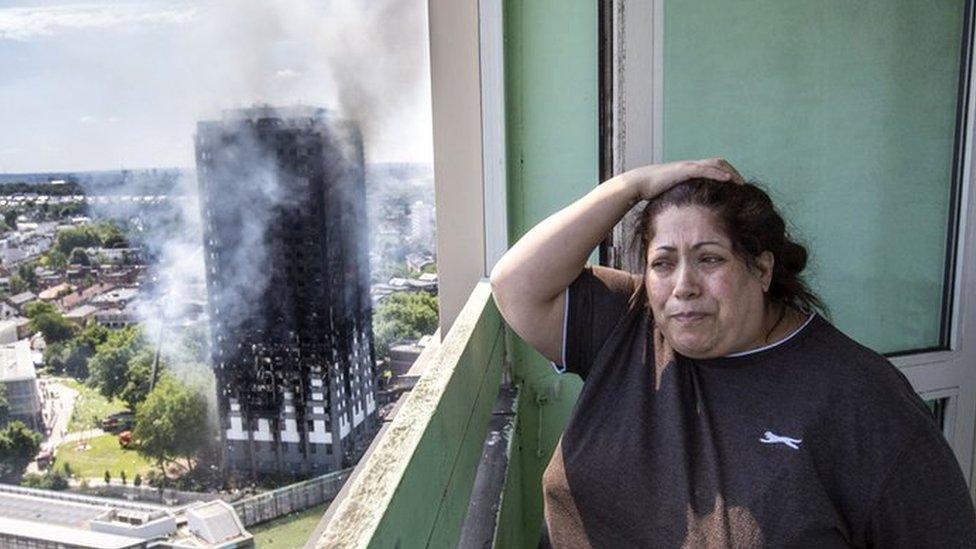NI Housing Executive inspects 32 tower blocks
- Published
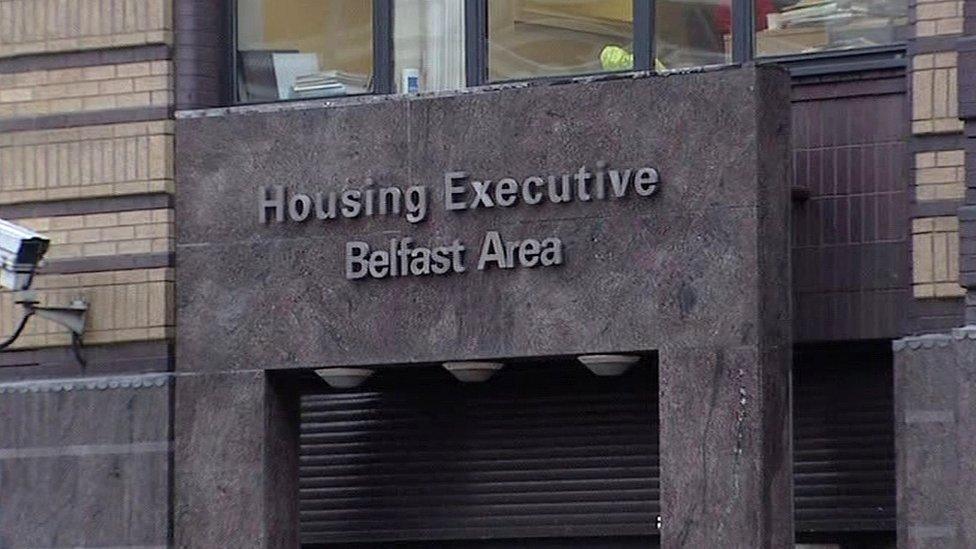
The Housing Executive has taken the decision following a large scale blaze in London
The Northern Ireland Housing Executive and Department of Health are to carry out checks on tower blocks and hospitals after a blaze in a block of flats in London.
At least 12 people are known to have died in the fire at a tower block in North Kensington during the early hours of Wednesday.
Concerns have been raised about the cladding installed on Grenfell Tower.
In total, 32 buildings will be checked by the Housing Executive.
Meanwhile, the Department of Health said it has asked health trusts to do an "immediate assessment" of their fire safety precautions at their hospitals and buildings, including "checks on the type of cladding used".
A Department of Health spokesperson said: "All necessary precautions will be taken to ensure the safety of staff and patients."
Colm McQuillan of the Housing Executive said the same type of cladding, as that on Grenfell Tower, had not been used on tower blocks in Northern Ireland, as far as he was aware, but that this was being checked.
"We have rigorously tested the cladding that has gone onto our buildings to an extent that it fits and meets all fire safety regulations," he said.
"We're not going to be complacent. We have an emergency meeting set up with the fire and rescue service today to actually go through any of their thoughts in relation to the recent tragedy and indeed we will work very closely with them in terms of what we should be doing."
There are approximately 1,900 homes and 3,000 residents within the units being checked by the NI Housing Executive.
The majority of tower blocks in Northern Ireland are based in Belfast, with others in Lisburn, Newtownabbey and Larne.
The Housing Executive had received calls from residents concerned about safety since the fire, said its director, adding that he wanted to reassure all tenants their safety was being taken seriously.
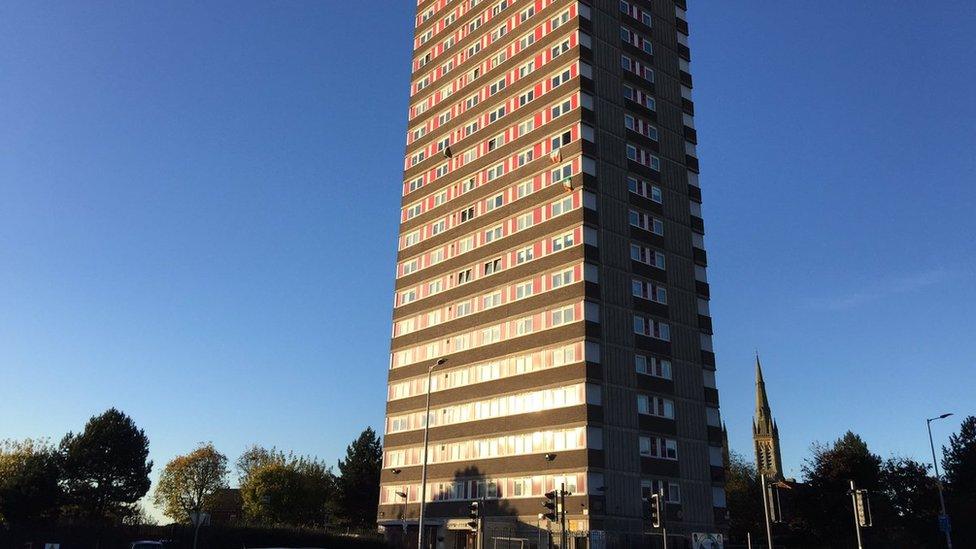
The majority of tower blocks in Northern Ireland are based in Belfast
The re-inspection would be completed by Thursday evening, he said.
Fire safety certificates are in place across all 32 properties owned by the Housing Executive.

The Northern Ireland Fire and Rescue Service has issued the following advice in the event of a fire:
Dial 999 and follow your building's fire policy
Do not use the lift
Make sure your neighbours know about the fire
If it is too dangerous to follow your escape route, stay inside the safest room
Pack blankets or clothes around the door to keep smoke out
Hang a towel or item out of the window to let firefighters know your location

Mr McQuillan said that there were no fire sprinklers installed in the buildings "due to the age of construction", but that the Housing Executive was "fully compliant with fire safety regulations".
"We will do what we need to do to ensure the safety of our residents," he said.
It is understood the Housing Executive will deliver leaflets to all residents about what to do in the event of a fire.
Group Commander of the Northern Ireland Fire and Rescue Service (NIFRS) Geoff Summerville described the blaze in London as an "unprecedented incident, one which we haven't seen the like of for years".
He said that tower buildings were usually designed to ensure that each individual compartment can withstand and prevent fire from spreading.
"Fire-fighting in high rises can be very challenging and crews train extensively to respond to these incidents," he said.
"We work very closely with the housing executive and private management companies to make sure that these buildings are safe, and make regular visits."
- Published15 June 2017
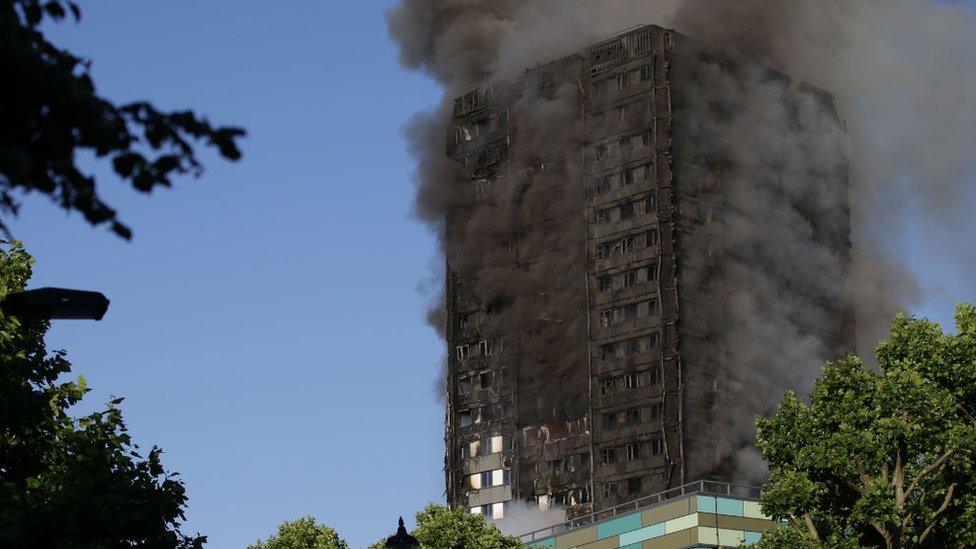
- Published18 May 2018
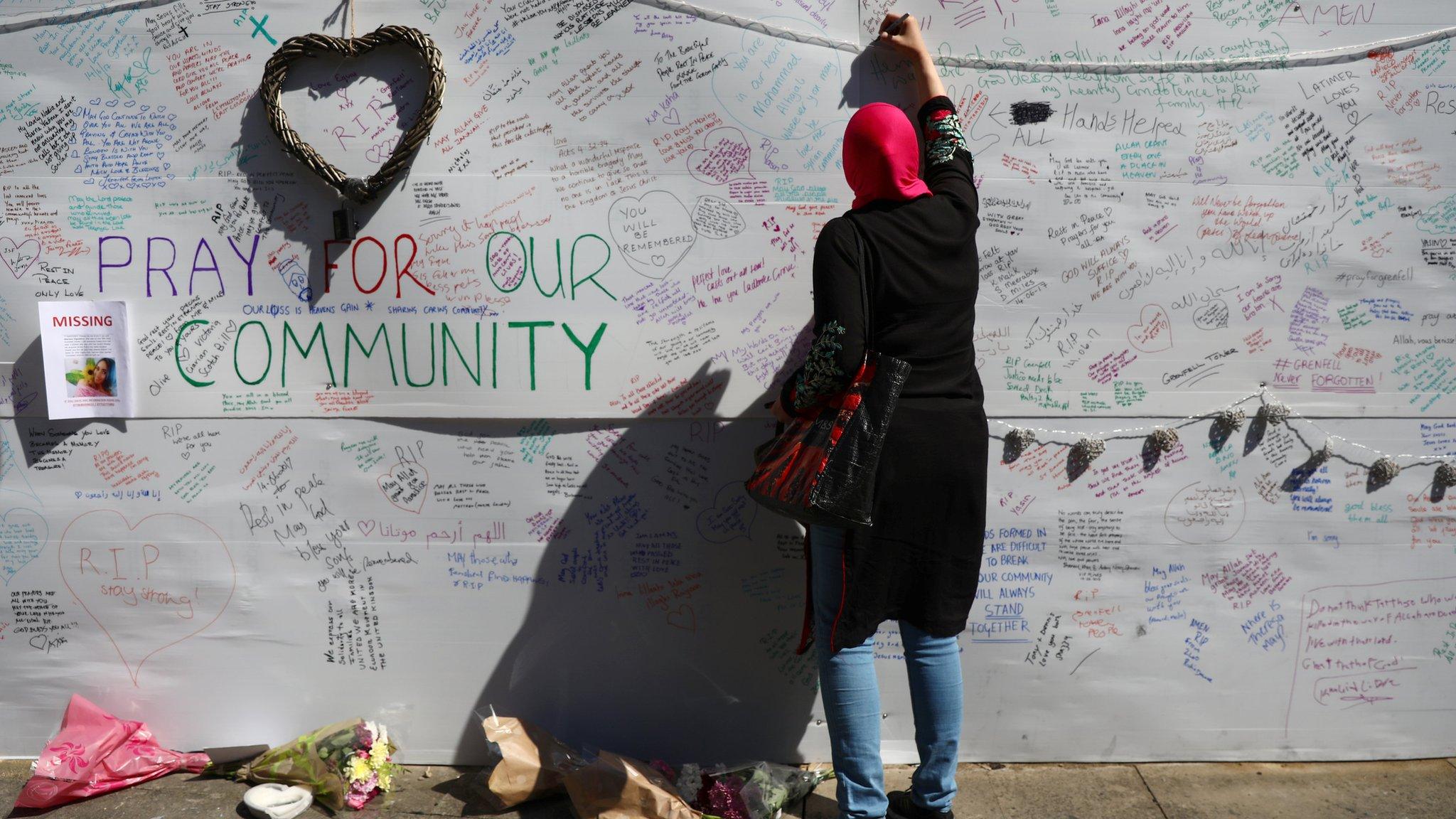
- Published11 June 2017
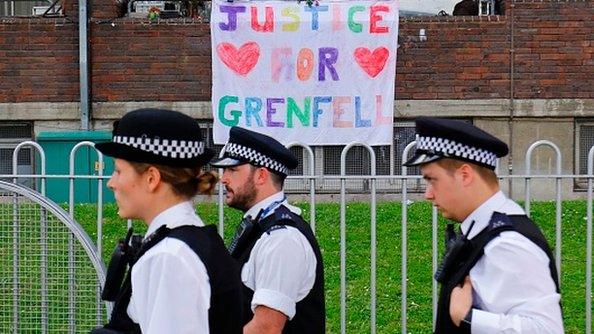
- Published14 June 2017
